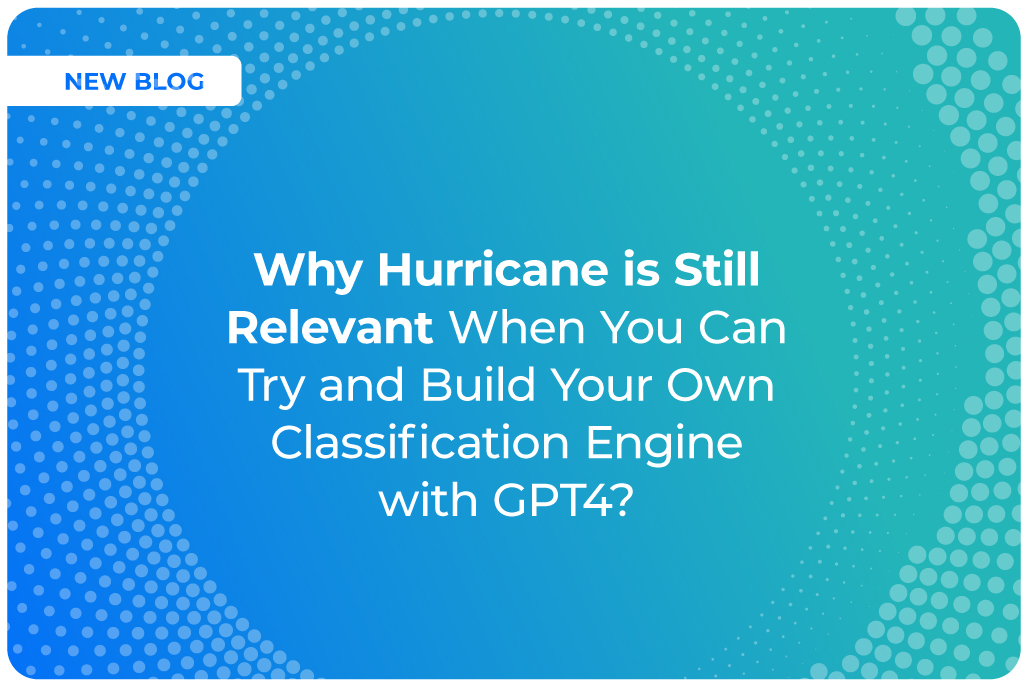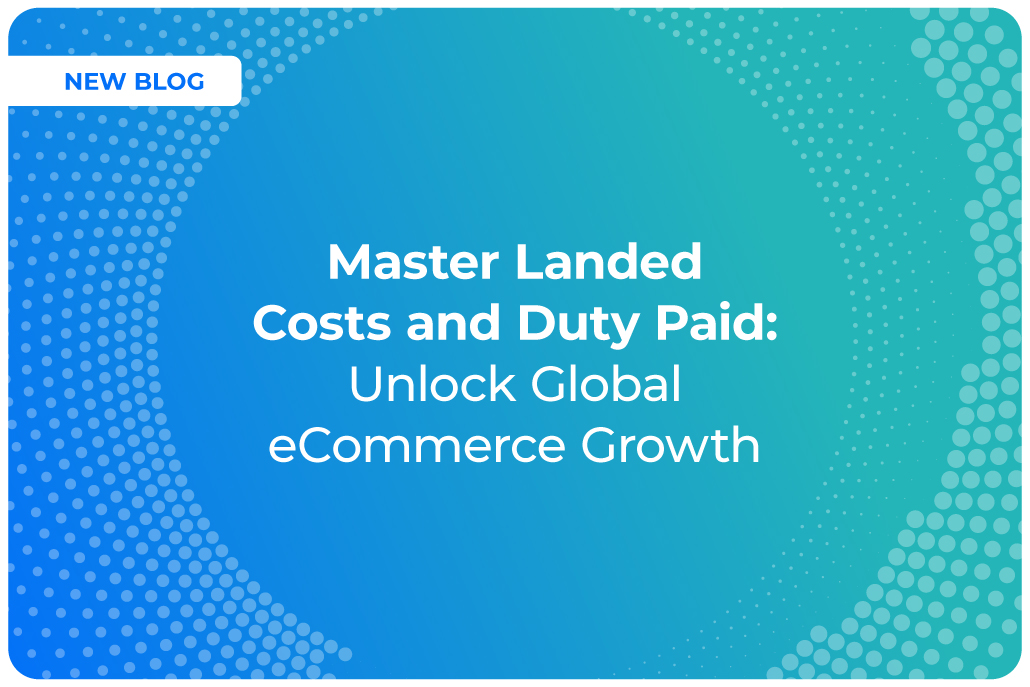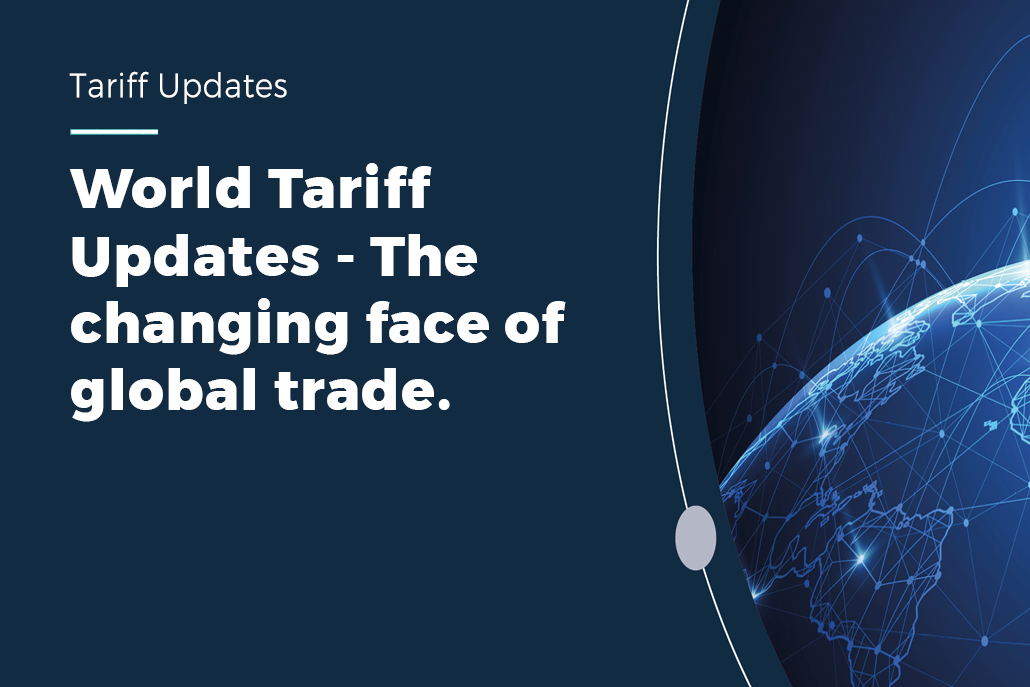International eCommerce has never been more accessible – or more daunting. With the global eCommerce market averaging $6.3 trillion in 2023 and set to reach $8.1 trillion by 2026, cross-border sales promise profits for retailers of all sizes.
Pretty much anyone with business savvy, an internet connection and a website can set up an online retail business. And it makes sense that more people are jumping at the opportunity to sell products almost anywhere in the world. The relatively low barrier to entry appeals to smaller retailers and individuals starting ‘side hustles’, who might have limited experience in selling/shipping goods on a national and international scale.
The various shipping methods available can be overwhelming, especially when combined with different options for customs duty and taxes.
We’ve created this guide to help you understand the difference between Delivered Duty Paid (DDP) and Delivered Duty Unpaid (DDU) shipping, and what each option means for both seller and buyers.
Whether you’re a small retailer or a larger company looking to scale your business, read on to learn about DDU vs DDP and find the best option for your shipments.
DDU vs DDP
Delivered Duty Unpaid (DDU) and Delivered Duty Paid (DDP) are two types of cross-border shipping arrangements particularly common with eCommerce shipments. Depending on the agreement, either the buyer or the seller is responsible for paying import duties, sales tax (VAT, GST etc.) and other fees such as customs clearance.
DDU shipping involves the customer taking responsibility for all shipping fees, and duties and sales tax. In contrast, the cost and risks under a DDP delivery agreement are covered by the seller.
Both DDU and DDP are commercial terms established by the International Chamber of Commerce (ICC). Better known as ‘Incoterms’, these standardised rules define the responsibilities and obligations of buyers and sellers in cross-border transactions.
Incoterms are widely used in shipping contracts to clarify the distribution of costs, risks and tasks between the parties involved. While there are currently 11 Incoterms referring to various responsibilities, DDU and DDP are the ones that specifically focus on eCommerce.
What are the implications of shipping goods DDP?
Delivered Duty Paid (DDP) is an international trade term where the seller/retailer takes responsibility for all the costs and risks involved in a shipment. This includes paying any applicable duties and taxes associated with delivering goods to a specific destination. It ensures that delivery duty and import fees are paid in full before the goods are shipped.
With DDP, the seller’s financial obligations cover:
- Import Duty
- Taxes (VAT or Goods and Services Tax)
- Customs clearance fees
- Documentation
- Handling expenses
- Transportation/local shipping
This might seem like a lot of responsibility, but it’s not as scary as it looks. Retailers usually incorporate these expenses into the price of the commodity listed on the website, establishing special rates and processes with preferred freight forwarders. This ultimately saves money and time, both for them and the customer.
What are the implications of shipping goods DDU?
Delivered Duty Unpaid (DDU) – also known by the Incoterm DAP (Delivered at Place) – is a shipping agreement in which the buyer or importer holds greater responsibility. While the seller pays for the parcel’s packaging and delivery to the destination country, the buyer or importer is on the hook for any import or customs clearance fees.
The buyer is responsible for:
- Import Duty
- Taxes (VAT or Goods and Services Tax)
- Unloading
- Customs clearance/inspection costs
- Documentation
- Any extra transportation costs to the buyer or importers address
The seller assumes the risk of accidental loss, damage or theft until the delivery reaches the destination country. But, if the buyer wants insurance to cover storage and transportation from the initial delivery point to the final destination, they’ll have to spring for that themselves.
Benefits of DDP shipping
DDP shipping helps eCommerce retailers provide a seamless and hassle-free shopping experience for their customers. By eliminating any uncertainties or surprises related to customs duties and taxes, the entire importation process becomes transparent and convenient for the buyer.
You might be thinking the advantages of a DDP delivery are a bit one-sided in the customer’s favour. But consider how keeping your customers happy is the key to both new and repeat business. While you’ll shoulder most of the liability and costs, you’ll also have a clear overview of the entire shipment process and ensure that it clears customs.
DDP delivery reduces the risk of shopping cart abandonment, customer churn, negative reviews and customer complaints. It also limits costly return-shipping fees.
The best bit? It doesn’t even have to cost you more. You can arrange preferential rates and processes with the carrier of your choice; plus, you can add these costs to the final price the buyer pays, so there are no hidden payments on their side.
Even though your customer ends up absorbing the costs, it can work out cheaper for them, too. Look at this example of selling a T-shirt with DDP shipping in the UK:
T-shirt value: £36
Delivered priced: £36
Under a DDU arrangement, however, the costs might look a little more like this:
T-shirt value: £30
VAT: £6
Clearance admin: £12
Delivered price: £48
You can see how the DDU option might grab someone’s attention… only to lose them once they get to the checkout.
Generally, people like to know what they’re paying upfront. A surprise import tax or customs clearance fee can be the difference between an ecstatic, satisfied customer and a customer that leaves a negative review. That’s the great thing about DDP shipments – no nasty surprises.
Challenges of DDP shipping
The obvious disadvantage of DDP shipping is that the retailer takes on all the risk and costs to the point of delivery. Although you have control of the whole process, you also need to have knowledge of individual countries’ import regulations and tariffs. Some countries have more complicated customs than others, which you’ll need to be aware of for the buyer to benefit from less stress and risk.
If you’re new to international shipping, DDP could seem daunting. While it might be tempting to leave it to customers to pay duties and taxes, our specialist eCommerce software can do the heavy lifting for you (and your customers) instead. They can automate product classification and international duties/tax calculations while you sit back and enjoy your cappuccino.
Benefits of DDU shipping
The Delivered Duty Unpaid agreement relieves the retailer of the stress and expense of customs clearance. Buyers might also have a shipping company or courier in mind they want to use from the couriers offered.
They can also have better visibility into the supply chain with the ability to track more progress compared with DDP cargo.
Challenges of DDU shipping
DDU shipping carries a huge risk of annoying the people you want to impress the most – your customers. Putting the liability on them can be frustrating for customers who aren’t used to international shipments and who may not realise they have to pay extra fees.
Sometimes Delivered Duty Unpaid can seem deceptive. Many customers spend lots of time researching products and comparing prices before choosing you as their supplier, so they expect the price they see on screen to be the final figure they pay. If you’re going the DDU route, you must ensure the customer knows they are liable for the tax and customs costs or they will lose trust in you.
Imagine you’re a customer impatiently waiting for your son’s birthday present to arrive. There will be tears and a miserable day ahead if he doesn’t get his much-anticipated new toy from the United States to show off to his friends. If the arrangement is DDU, you’ll probably be the one shedding tears from the time spent arranging customs clearance or sticker shock of extra import and customs fees!
Even if the seller is upfront about fees, potential customers can still change their minds when they see the price of tax and handling fees at checkout. According to the Baymard Institute’s research, 48% of customers blame high extra shipping and tax costs for cart abandonment. A further 16% of customers claim that a lack of clarity around the total price of their order caused them to abandon the cart.
The customs brokerage fees are bigger for individual customers than the ones you could negotiate as a retailer. The short-term gain of saving a few bucks is not really worth the long-term damage of bad reviews, return shipments and losing customers.
DDP: A customer-friendly shipping choice
Paying duties is an essential component of a smooth international shipment process. From stock levels to supply chains, retailers already have an overwhelming number of logistics balls to juggle.
It’s no wonder the uninitiated may be tempted to go the DDU route. After all, it looks simpler and cheaper. But looks can be deceiving.
The short-term gain of saving some money and paperwork on DDU shipping can backfire when unsuspecting customers realise they have to pick up the slack. Surprise import fees and other costs aren’t conducive to a great customer experience.
DDP shipping is chock-full of advantages for the seller and the customer. Most customers just want to complete an order in a few clicks and then wait for their product to arrive. In the world of DDU vs DDP for retailers, the latter generally has the edge.
The better the data, the easier the process. And that’s where our lightweight and user-friendly Kona API shines. Integrating with any eCommerce site, it collates every piece of information, including shipping, duties and taxes and customs fees, to give shoppers the exact total of their cart.
The Hurricane Kona One Call API doesn’t leave anything to chance when it comes to making your eCommerce site a surprise-free zone. Not only does it provide a better experience for your customers, but it also helps keep you data compliant. Win-win!
If you’re interested in any of our automated customs solutions, contact us to find out more.













